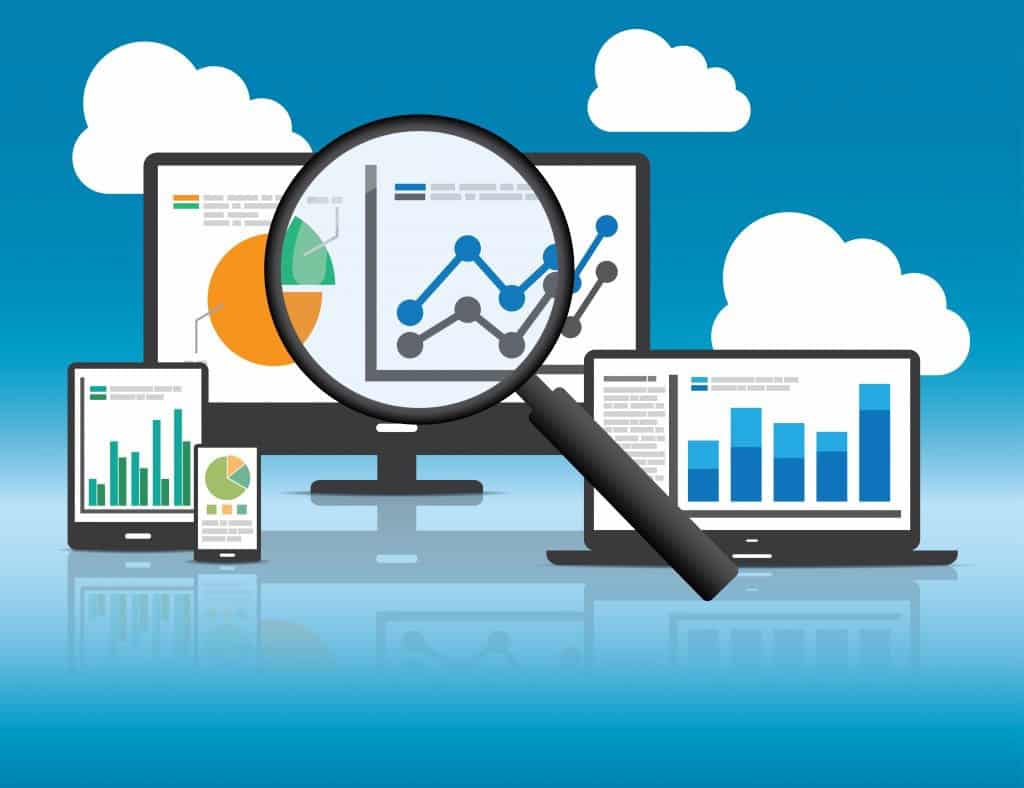In today’s digitized real estate ecosystem, big data has emerged as a vital asset in tracking, understanding, and predicting market trends. Whether it’s forecasting housing demand or pinpointing high-growth neighborhoods, the power of big data provides unmatched insight. For Multiple Listing Services (MLS), leveraging big data transforms static databases into predictive engines that support smarter decisions and agile strategies.
Overview
Big data refers to vast volumes of structured and unstructured information generated at high velocity. In real estate, this includes listing data, demographic trends, consumer behavior, market transactions, social media signals, and much more. Integrating these datasets into MLS platforms opens new dimensions of trend analysis, driving innovation and efficiency.
The Meaning of the MLS Concept
MLS, or Multiple Listing Service, is a collaborative platform where licensed real estate professionals share property listings. MLS serves as the backbone of the housing market, offering comprehensive, standardized data that facilitates cooperation and transparency. The application of big data analytics within MLS enhances its value by transforming raw listings into actionable insights.
Training Courses for MLS
As big data becomes integral to real estate strategy, MLS training courses now incorporate data literacy, visualization tools, and analytic platforms. These programs teach agents how to interpret trends, compare historical performance, and utilize predictive models effectively.
Certification for MLS Agents
Certifications today focus not only on compliance and listing accuracy but also on analytical proficiency. Agents are trained to harness big data for pricing strategy, neighborhood analysis, and market positioning—skills that elevate their role from salesperson to trusted advisor.
MLS Agent Onboarding Processes
Onboarding programs increasingly emphasize data-driven practices. New agents learn to use MLS dashboards that visualize market trends, filter listings by demand metrics, and access real-time consumer interest reports powered by big data.
MLS Platforms
Modern MLS platforms such as CoreLogic, Bright MLS, and CRMLS integrate big data engines to support interactive analytics. These systems allow for advanced search filters, AI-powered recommendations, and real-time reporting, providing users with a competitive edge.
Optimizing MLS Listings
Listings optimized with data insights stand out. Analytics can suggest the best day and time to list, recommend ideal price points based on trends, and highlight keywords that increase search visibility. These insights are fueled by continuous data monitoring.
Artificial Intelligence in MLS
AI and big data are a natural pairing. Algorithms analyze historical trends and user behavior to suggest properties, forecast pricing, and streamline workflows. The richer the dataset, the more effective the AI.
Analytics in MLS
Analytics powered by big data help uncover hidden patterns in buyer preferences, seasonal cycles, and competitive behavior. Agents and brokers gain clarity on what sells, where, and why, enabling fine-tuned strategies.
Economic Impact Analysis in MLS
Government agencies and urban planners rely on big data to evaluate the economic effects of real estate trends. MLS platforms that integrate census data, construction permits, and transaction history help paint a comprehensive picture.
Utilizing Big Data for Market Trend Analysis
Big data reveals the direction in which the market is moving. By analyzing variables such as days on market, absorption rates, pricing changes, and geographic shifts, professionals gain predictive capabilities. Advanced visualization tools allow users to interpret patterns, while machine learning models improve forecast accuracy. As the volume and variety of data grow, so does the power of trend analysis.

MLS Data Quality Management
For big data to be useful, it must be clean and reliable. MLS systems implement data validation checks, duplicate detection, and anomaly alerts to maintain data integrity. High-quality data ensures credible analytics and trustworthy decisions.
MLS Data Security Standards
Data security is critical, especially with the inclusion of big data sources. Encryption, multi-factor authentication, and GDPR compliance protocols safeguard sensitive data, protecting clients and businesses alike.
Fix and Flip in MLS
Investors track undervalued properties and identify optimal buy-sell cycles using big data. Analysis of neighborhood appreciation rates, renovation costs, and comparable sales enhances ROI.
MLS Property Valuation Tools
Automated valuation models (AVMs) rely on big data to calculate property values with precision. These tools incorporate recent sales, local trends, and home-specific attributes for real-time estimates.
How to Use MLS to Build a Rent-to-Own Portfolio
Big data uncovers sellers who might be open to creative financing. By filtering listings based on time on market, pricing flexibility, and location trends, investors can target rent-to-own opportunities.
Using MLS to Source Lease Option Opportunities
Lease option deals require data on homeowner motivation, market stagnation, and rental demand. MLS analytics powered by big data expose these indicators, helping investors strike timely deals.
Cross-Promotion Strategies in MLS
Using behavioral and engagement data, agents can tailor cross-promotional efforts to audiences with a higher conversion likelihood. Integrated analytics show which platforms yield the most traffic and leads.
MLS Lead Generation
Predictive lead scoring systems analyze user activity, past inquiries, and property interest trends to prioritize the hottest leads. Big data enhances CRM targeting and follow-up personalization.
Digital Marketing for MLS
Real-time analytics inform marketing decisions—from ideal ad copy to campaign timing. Big data allows MLS platforms to test and refine strategies quickly, leading to better returns.
MLS Email Marketing Integrations
Email tools connected to big data systems personalize content based on user behavior. Suggested listings, price changes, and market insights are curated to increase engagement.
Social Media Integration in MLS
Engagement metrics from social platforms feed into MLS dashboards, revealing which content resonates most. Data-driven content strategies increase reach and drive qualified traffic.
Machine Learning Models for MLS
These models improve over time with more data. Predictive algorithms identify emerging neighborhoods, buyer personas, and optimal list prices. Feedback loops refine models continuously.
Avoiding Legal Trouble When Wholesaling MLS Properties
Big data systems flag listings that don’t meet wholesaling criteria or are subject to legal constraints. These alerts help investors stay compliant and reduce risk.
Sustainable Development Data in MLS
Big data tracks developments in green building certifications, energy use, and construction materials. This helps buyers and developers interested in sustainable projects make informed choices.
Renewable Energy Integration in MLS
With big data, properties featuring renewable energy components can be spotlighted. Market trends around solar adoption, EV readiness, and utility costs inform both buyers and sellers.
Process Improvement in MLS
Operational inefficiencies are easier to detect with big data. From time-to-close metrics to listing errors, trend analysis highlights bottlenecks and suggests process enhancements.
Innovation Hubs in MLS
MLS platforms are becoming innovation hubs, using big data to incubate new tools and features. Collaboration with proptech startups enables rapid development of market-responsive applications.
MLS Review and Reputation Systems
Big data helps power dynamic review systems that reflect up-to-date agent performance metrics, customer satisfaction ratings, and transactional history.
Venture Capital Investments in MLS
Venture capitalists evaluate MLS-based startups using data on market growth, user acquisition, and engagement metrics. Platforms using big data effectively are more attractive investment targets.
Business Model Innovation for MLS
MLS organizations diversify their offerings by monetizing analytics dashboards, premium data access, and trend reports. Big data underpins these new revenue streams.
MLS Operational Efficiency Solutions
Efficiency tools use big data to benchmark agent performance, streamline listing workflows, and optimize platform load times based on usage patterns.
MLS Professional Development
Professional development programs now include data interpretation, machine learning basics, and analytics storytelling. These skills are essential in a data-driven industry.
MLS Personalization Features
Personalized dashboards and search filters adapt based on user behavior, thanks to data insights. This customization improves satisfaction and retention.
User Experience Design for MLS
UX design is increasingly informed by data. Heatmaps, session recordings, and A/B tests reveal how users interact with MLS platforms, guiding improvements.
Usability Testing in MLS
Big data supports usability testing by capturing user actions, frustrations, and navigation paths. These insights help developers enhance the interface experience.
Frequently Asked Questions
What is big data in real estate?
Big data includes all large-scale information sources like MLS listings, demographic stats, social media signals, and market transactions.
How does big data help in market trend analysis?
It reveals patterns and correlations that indicate future market behavior.
Are MLS platforms using big data now?
Yes, leading MLS systems have adopted analytics dashboards and predictive modeling tools powered by big data.
Is big data secure?
With encryption, access controls, and compliance frameworks in place, big data systems can be made highly secure.
Can agents without a tech background use big data tools?
Yes, many MLS platforms provide user-friendly interfaces and training to support agents in using analytics effectively.
Big data is revolutionizing the real estate industry. For MLS platforms, it transforms static listing repositories into intelligent systems capable of driving growth, precision, and competitive advantage. As the technology evolves, those who invest in data fluency and infrastructure will lead the future of real estate.










